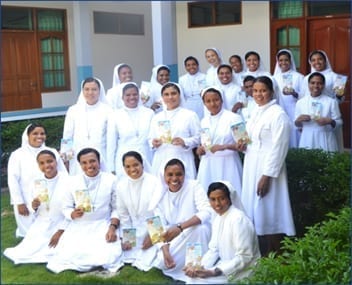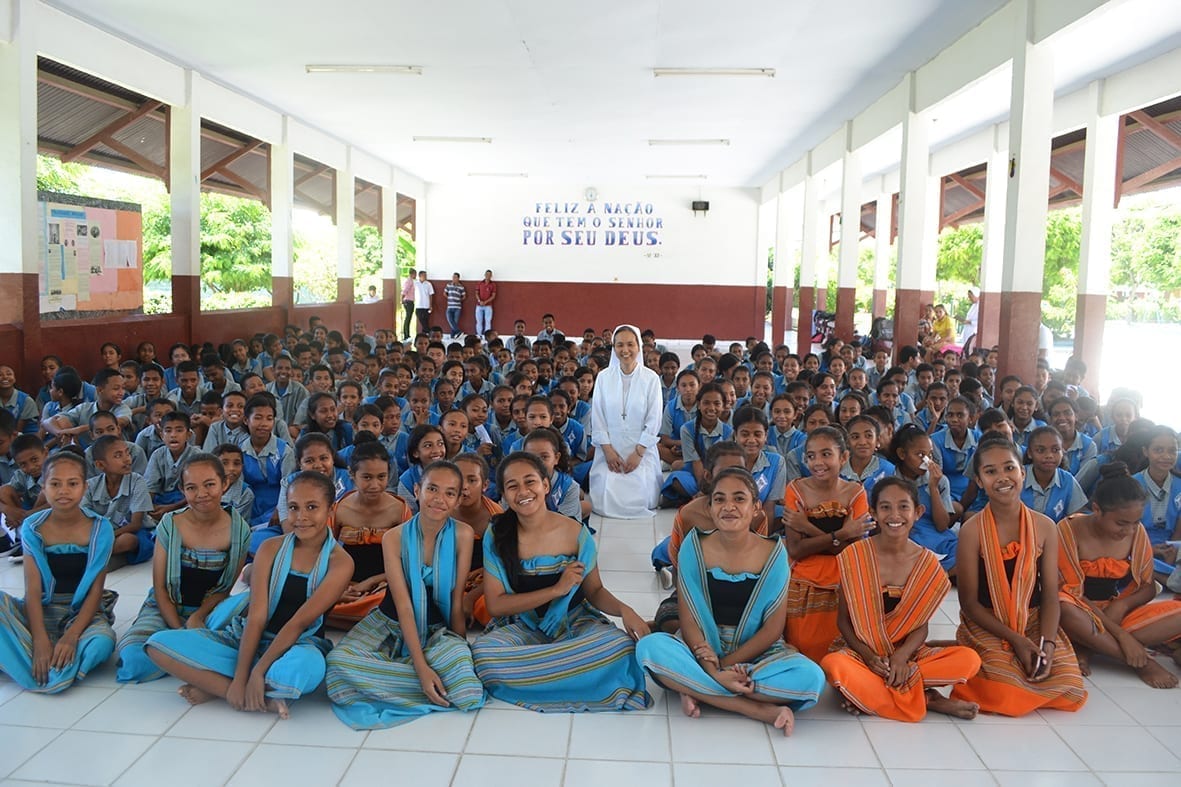Dili (East Timor) From 13 to 16 March, Sister Assunta Sumiko Inoue visited Blessed Eusebia Palomino Community of the Province of St. Mary Mazzarello (TIN), made up of 9 Daughters of Mary Help of Christians, 50 teachers, and 1800 students from the Nursery School to the Secondary School of grade 1.
After being welcomed by the children and young people with traditional dances, Sister Assunta greeted them with 9 messages, one for each grade, beginning from their responses on the motivation to study. One girl replied: “In this school we learn to respect people; we learn how to study well and to participate in the various formation activities; we learn to know and love God, and to pray”. School is like a family for them.
Sister Assunta encouraged the students to be “good Christians and honest citizens” and to do this, in addition to studying to become better and act as reasonable people, they must learn how to be good Christians and honest citizens before God.
She then went on to say: “When you think about your future, you have to think about how to study and what to become in the future, because the job will end one day, you will become old, but your personality will not change. For this you must learn well from your teachers.” She advised the children not to forget that they never stop learning, that formation is continuous, and that it is important to start living this commitment right now, not tomorrow. In addition, she encouraged the teachers to form themselves as good Christians so that they could set an example for students.

In her encounter with the community, Sister Assunta invited them to reflect on the passage of the disciples of Emmaus, proposing a Decalogue for pastoral conversion and the alphabet of community life: “we need the verbs to love, bless, contemplate, dialogue, build up, qualify the community, remain in the community, greet each other, and ‘sweeten’, that is, put a little sweetness into it.” Subsequently, she dedicated a day for meeting with the young FMA in the TIN Province. Sister Assunta proposed to them a reflection on the “Beatitudes of Consecrated Life” with these questions: What joy have I experienced in consecrated life? What sufferings have I experienced in community life? What do I hope for the future of the Province?


















